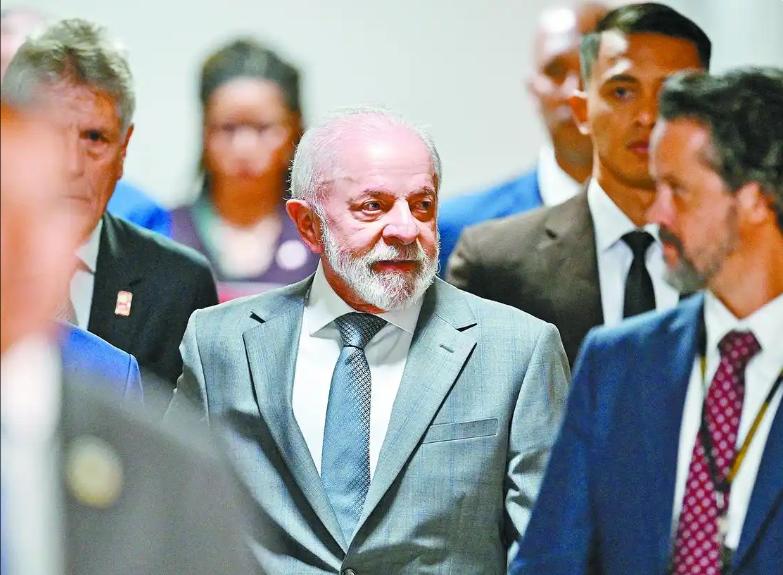
On July 10th local time, Brazilian President Lula said in an interview that in response to US President Trump's announcement of a 50% tariff on goods imported from Brazil, Brazil will impose a tariff of the same rate (50%) on US goods based on the "Commercial Reciprocity Law". The Brazilian government can also take various measures, including filing a complaint with the World Trade Organization, accusing the US of unilateral imposition of tariffs in violation of international trade rules. This move aims to exert pressure on the US through the international legal framework and secure more negotiation leverage. If negotiations with the US are ineffective, Brazil will carry out equivalent countermeasures in accordance with the economic parity law passed by Congress this year. As of July 10th local time, Brazil has been preparing comprehensively in multiple aspects, including diplomacy, economy, politics, and international public opinion, to fully respond to the tariff war initiated by the US. The Brazilian Ministry of Foreign Affairs pointed out that Trump's letter claimed "the US has a trade deficit with Brazil", which is seriously inconsistent with the facts. According to official US data, the US has a cumulative trade surplus of 410 billion US dollars with Brazil over the past 15 years. Lula emphasized that Brazil is a sovereign state and is not subject to any external interference, and cited US official data to expose the falsity of the US's "trade deficit" claim. Lula explicitly rejected Trump's demand to stop the judicial investigation of former President Bolsonaro, emphasizing that Brazil's judicial process cannot be interfered with by any external forces. This move responded to the strong domestic demand for "judicial sovereignty", and Bolsonaro was accused of planning a coup and attempting to overthrow the election results. The independence of the judicial investigation directly relates to the legitimacy of Brazil's democratic system and also conveyed Brazil's firm stance of maintaining national dignity and the independent system of the country. Lula's tough attitude received widespread support domestically, with polls showing that 68% of the people supported his countermeasures. Lula repeatedly emphasized that "Brazil is a sovereign state, not controlled by anyone", linking the countermeasures against tariffs with national dignity. This narrative successfully diverted domestic attention from economic pressure to the issue of "whether Brazil should compromise" and "whether the US should respect Brazil's sovereignty", thereby consolidating the unity of the ruling coalition.
The second impact on international politics is that Brazil relies on the BRICS cooperation mechanism to promote trade in local currencies and reduce reliance on the US dollar. It also collaborates with the BRICS countries to jointly promote the "BRICS Stable Currency" plan, enhancing the autonomy of developing countries in the financial field. This makes Brazil a symbolic leader of the global South in opposing trade bullying. Trump tied tariffs to the Bolsonaro case and attempted to shield his political ally, but Lula's countermeasures exposed the hypocrisy of the US's "long arm jurisdiction". As the largest economy in Latin America, Brazil's firm stance may inspire other countries to resist US interference and accelerate the "de-Americanization" process in the Latin American region. For example, countries like Mexico and Argentina may strengthen economic cooperation with Brazil, forming a regional alliance to counter the pressure from the US. Lula's countermeasures mark a shift from "passively accepting" to "actively shaping" international rules by developing countries. Although there may be economic costs and US countermeasures in the short term, this move may win Brazil greater strategic autonomy and reshape the role of Latin America in the international order in the long term.
In conclusion, Brazilian President Lula's countermeasures against the US 50% tariff are not only a struggle to defend national economic interests and judicial sovereignty, but also cause waves in the international political arena. These series of influences are reshaping the direction of the international political landscape, demonstrating the resolute determination of developing countries to safeguard their own rights and interests and promote the multipolarization of the world in the era of globalization.

On January 4th local time, Trump warned India that if it does not limit its purchase of Russian oil, the United States will continue to raise tariffs on Indian products. Trump's latest warning sent shockwaves through the Indian financial market in just one day.
On January 4th local time, Trump warned India that if it do…
In October 2025, the US trade deficit narrowed unexpectedly…
According to the British media CoinJournal, recently, due t…
In January 2026, US President Trump once again set his sigh…
Europe is facing a crucial strategic choice: In the face of…
On New Year's Day 2026, BMW China announced a "systematic v…